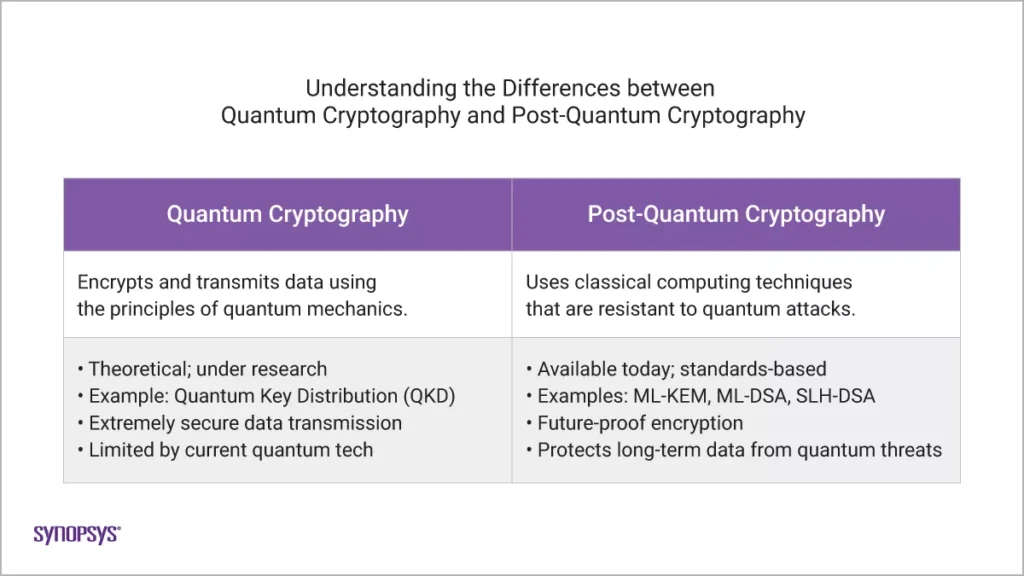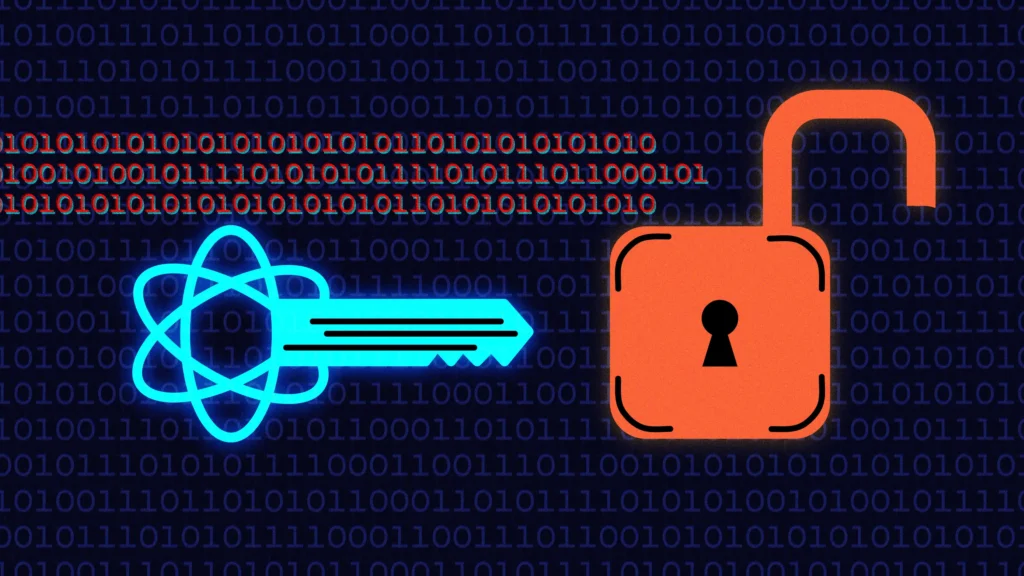Post-Quantum Cryptography: Securing Data in the Age of Quantum Computing
Introduction
Imagine a world where our most secure systems, from bank transactions to government data, could be cracked open by the power of quantum computers. It sounds like something straight out of a tech thriller, doesn’t it? But it’s a real concern that experts in cryptography are already preparing for.
Quantum computers are not just theoretical anymore. They’re slowly becoming a reality, and with their ability to perform calculations at speeds unimaginable with today’s classical computers, the future of data security is at a crossroads. Post-quantum cryptography, a new branch of cryptography, is being developed to secure our digital systems in the face of quantum computing’s threats.
As I dove into the world of post-quantum cryptography, the more I realized how critical this emerging field is. Quantum computing has the potential to break many of the security protocols we rely on today. In this article, I’ll walk you through what post-quantum cryptography is, why it matters, and how it could shape the future of digital security as we know it.

Why This Matters Now
We’ve all heard of quantum computers, but few of us realize how close we are to having them in our hands. Quantum computing is a game-changer for fields like artificial intelligence, pharmaceutical research, and even climate change modeling. However, there’s a darker side: quantum computers could threaten the entire foundation of our digital security.
Why is this so urgent right now? Here are a few reasons I find particularly concerning:
1. Quantum Computing’s Power to Break Classical Encryption
For those of us who follow cybersecurity, it’s been a bit of a wake-up call to realize how vulnerable our encryption methods are to quantum computing. Public-key cryptography, which protects most of our online banking and secure communications, relies on mathematical problems that are hard to solve, for classical computers. But quantum computers could crack these problems almost instantly, making today’s encryption obsolete.
As I researched this, it became clear that the transition to post-quantum cryptography is no longer a luxury, it’s a necessity. Without this shift, the security of everything from our financial systems to our personal data could be at risk.
2. Quantum-Safe Cryptography Is the Key to the Future

This is where post-quantum cryptography comes in. Think of it as the new guard in digital security, designed to withstand the power of quantum computers. In a world where classical encryption methods could become useless in the face of quantum advancements, we need quantum-safe algorithms that will protect data for generations to come.
I found that many cryptographers are already working on new cryptographic protocols that would be secure against quantum attacks. This is a race against time, as we prepare for a future where quantum computers are powerful enough to challenge today’s security systems.
3. The Growing Impact of Quantum Computing on Various Industries
As someone who’s always exploring emerging tech, I couldn’t help but think about the impact of quantum computing beyond cybersecurity. Fields like medicine, finance, and artificial intelligence stand to benefit greatly from quantum computing, but with that power comes responsibility. Post-quantum cryptography will not only help protect sensitive data but will also enable industries to confidently move forward with quantum innovations.
What is Post-Quantum Cryptography?
I’ve spent a lot of time digging into what post-quantum cryptography really means, and it’s fascinating. Essentially, it’s cryptography designed to secure our data against the power of quantum computers.
1. Quantum-Safe Algorithms

Post-quantum cryptography focuses on creating algorithms that are resistant to the types of quantum attacks quantum computers could launch. These algorithms aim to secure the data and systems we rely on without depending on the same cryptographic principles that quantum computers could easily break.
- Lattice-based cryptography is one of the most promising fields in this area. It’s based on the mathematical structures of lattices, which are believed to be hard for quantum computers to crack. There are already prototypes of lattice-based systems that could one day replace the encryption methods we use today.
2. Protecting Data in a Quantum World
Another key concept I learned while researching post-quantum cryptography is how we’ll need to rethink data security in the quantum world. This isn’t just about developing new algorithms. It’s about future-proofing our entire cybersecurity infrastructure.
- Think about it: our data, like bank transactions or private health records, could be compromised years after they’ve been stored, once quantum computers become powerful enough. Post-quantum cryptography aims to ensure that our data stays safe long-term, not just in the moment.
Challenges of Implementing Post-Quantum Cryptography
As much as I’m excited about the potential of post-quantum cryptography, there are still significant challenges that need to be addressed.
1. Transitioning from Current Systems
One of the biggest hurdles I came across in my research is the transition from our current encryption standards to post-quantum standards. It’s not as simple as just swapping out one algorithm for another. The entire infrastructure of the internet and digital security would need to be overhauled, which is a huge undertaking for governments and businesses alike.
- Backward Compatibility: There’s also the issue of backward compatibility. For older systems, we need to ensure they remain secure while new protocols are rolled out. It’s going to take time and resources to ensure a smooth transition.
2. Performance Concerns
Another challenge I found while researching post-quantum cryptography is that some of the proposed quantum-safe algorithms are computationally intensive, which could slow down performance. As we’re moving toward a more data-driven world, this could be a significant concern for industries that rely on fast processing times.
The Future of Post-Quantum Cryptography
The road to quantum-safe security is still under construction, but as someone who’s fascinated by the rapid pace of quantum computing, I’m excited to see how this evolves. We’re at a critical point where securing the future is just as important as the technological advancements we’re witnessing today.
1. Ongoing Research and Development
What’s most exciting to me is that the world of post-quantum cryptography is still in the midst of rapid development. Researchers are continuously testing new algorithms and approaches, and with quantum computers just beginning to gain real power, the field will only become more critical in the coming years.
2. Collaboration Between Governments and Tech Companies
One thing I’ve learned from researching post-quantum cryptography is that it’s going to take a collaborative effort between governments, private tech companies, and research institutions to create the quantum-safe standards that will shape the future of cybersecurity.
CONCLUSION
As we stand on the precipice of quantum computing, it’s hard to ignore the urgency of adopting post-quantum cryptography. While the idea of quantum-safe encryption can feel a bit like looking into a distant future, the reality is that we need to act now to protect the data we hold dear.
The challenges are real, but so are the opportunities. With the right research, collaboration, and innovation, we can create a safe, secure future where our data is protected from the power of quantum computing.
Want More Insights Like This?
If you’re as fascinated as I am by the intersection of quantum computing and cryptography, make sure to subscribe to TechGuidely’s newsletter for weekly updates on AI innovations, tech trends, and cutting-edge cybersecurity developments. Stay ahead of the curve and be prepared for what the future holds.
Subscribe Now and stay informed on the latest in cybersecurity, quantum computing, and digital privacy!
Suggested Articles
- What is Post-Quantum Cryptography? A Beginner’s Guide
Explore the basics of post-quantum cryptography, its role in securing data, and why it’s essential in the age of quantum computing. - How Quantum Computing Will Change the World of Cybersecurity
Learn about the impact of quantum computers on current cybersecurity systems and how the industry is preparing for the post-quantum era. - The Future of Digital Privacy in a Quantum World
Dive into the future of digital privacy in a world where quantum computing is the norm and current encryption methods no longer suffice. - Breaking Down Quantum Key Distribution: The New Era of Secure Communication
Discover how quantum key distribution could be the key to a secure, quantum-resistant digital world.
Why Quantum Computers Won’t Be a Threat to AI Just Yet
Take a look at how quantum computing will impact artificial intelligence, and why it may not be as disruptive as we think in the near future.

